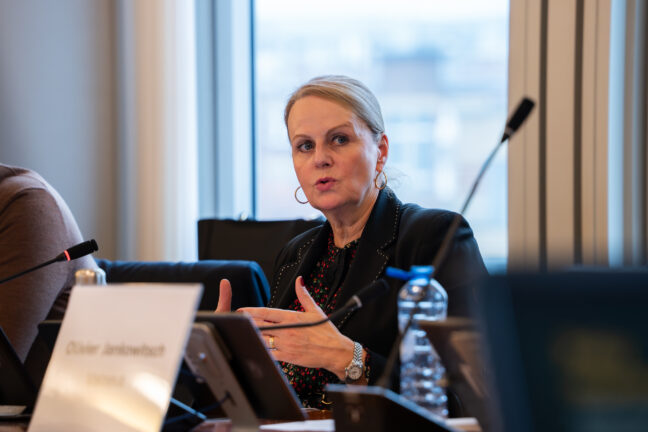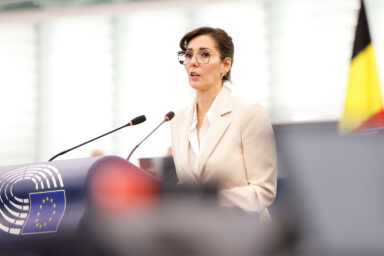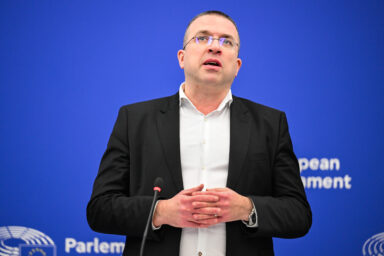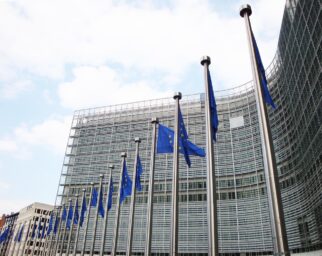The European Commission is moving to strengthen Europe’s defences against mosquito-borne diseases. New funding for vaccines, therapeutics and diagnostics, alongside expanded airport wastewater surveillance, should do the job.
Florika Fink-Hooijer, Director General of the EU Health Emergency Preparedness and Response Authority (HERA), told a European Parliament event this week that climate-driven diseases are no longer remote threats. Diseases such as dengue and chikungunya, she warned, are now appearing within Europe’s borders.
“Early detection is extremely important. “You can see trends and that gives us early information,” she said. The EU’s wastewater surveillance system, she added, will now be connected to airports as global hubs.
Ms Fink-Hooijer detailed a growing toolkit of countermeasures. “We do have a chikungunya vaccine,” she said, noting that it had been co-financed by the EU. “We know that we have two vaccines also for dengue.”
You might be interested
Surveillance and vaccines
Looking ahead, she pointed to EU-backed research through Horizon Europe into a broad-spectrum flavivirus vaccine, which will be tested against yellow fever in preclinical trials. “We also are now financing new research into a more broadband spectrum vaccine for addressing different types of multiple flaviviruses,” she said.
But vaccines are only part of the picture. “It is something that we will need: vaccines and therapeutics, but also early diagnostics,” she stressed, underlining that mosquito-borne countermeasures should not be treated like insurance stockpiles for rare emergencies. “Preparedness means countermeasures … but also to go first on surveillance, surveillance and detection and then also diagnostics.”
These investments build on the EU’s Medical Countermeasures Strategy, published in July. For the first time it put mosquito-borne diseases such as dengue and chikungunya on the same preparedness footing as pandemics and antimicrobial resistance. The strategy set out plans to strengthen EU capacity on vaccines, diagnostics, stockpiles and cross-border cooperation.
‘We don’t have weeks, months’
On 25 September, the European Parliament held an event Addressing Climate-Change Related Disease Outbreaks in Europe. Hosted by Hungarian MEP András Kulja (EPP/HUN), a surgeon by training, the event coincided with the launch of new policy recommendations.
Mr Kulja warned that the EU must act faster to protect its citizens from climate-driven outbreaks. He pointed to this summer’s surge of West Nile virus in Italy, Greece and Romania. “Strengthening EU agencies, HERA and ECDC, must be given the resources, mandate and flexibility to act quickly when the outbreak occurs,” he said. “And in these situations, we don’t have time, we don’t have weeks, months, to tackle the problem.”
HERA and ECDC must be given the resources, mandate and flexibility to act quickly when the outbreak occurs. – MEP András Kulja (EPP/HUN)
Europe’s demographic risk
Henrik Salje, professor of infectious disease epidemiology at the University of Cambridge, presented modelling showing how Europe’s ageing population amplifies the risks. In a typical outbreak of 100,000 dengue or chikungunya infections, “you might see about 15 deaths,” he said.
“But if we pretend the size of the population is the same, and we just have the European demography in that place, you’d see a 90 percent increase in the number of deaths. And if we fast forward to 2050, that’s going to jump to 160 percent.”
If we pretend the size of the population is the same, you’d see a 90 per cent increase in the number of deaths. And if we fast forward to 2050, that’s going to jump to 160 per cent. — Henrik Salje, professor of infectious disease epidemiology at the University of Cambridge
“With an old population, it doesn’t really matter which pathogen you look at. It’s simply because of this demography issue,” Mr Salje added.
Broader resilience push
While much of the discussion focused on surveillance and vaccines, Ms Fink-Hooijer also placed mosquito-borne diseases in a wider political frame. She linked the threat to the Commission’s planned Global Health Resilience Initiative. This was first mentioned by EC President Ursula von der Leyen in her State of the Union address earlier this month.
“If covid-19 showed us one thing, it’s that you cannot be safe by just looking at your own. … the president had put forward this idea of a new global health resilience initiative,” Ms Fink-Hooijer said. “The president put forward this idea of a new Global Health Resilience Initiative. Her approach is very much a multilateral approach.”
Contrasting it with the United States’ new “America First” global health strategy, she added: “Ultimately we all understand that we are vulnerable. If something happens one way in this planet, it can affect everybody.”
For Mr Kulja, the urgency is clear. “By 2050, nearly a third of European citizens will be over 65,” he said. “We must act, and act now.”











